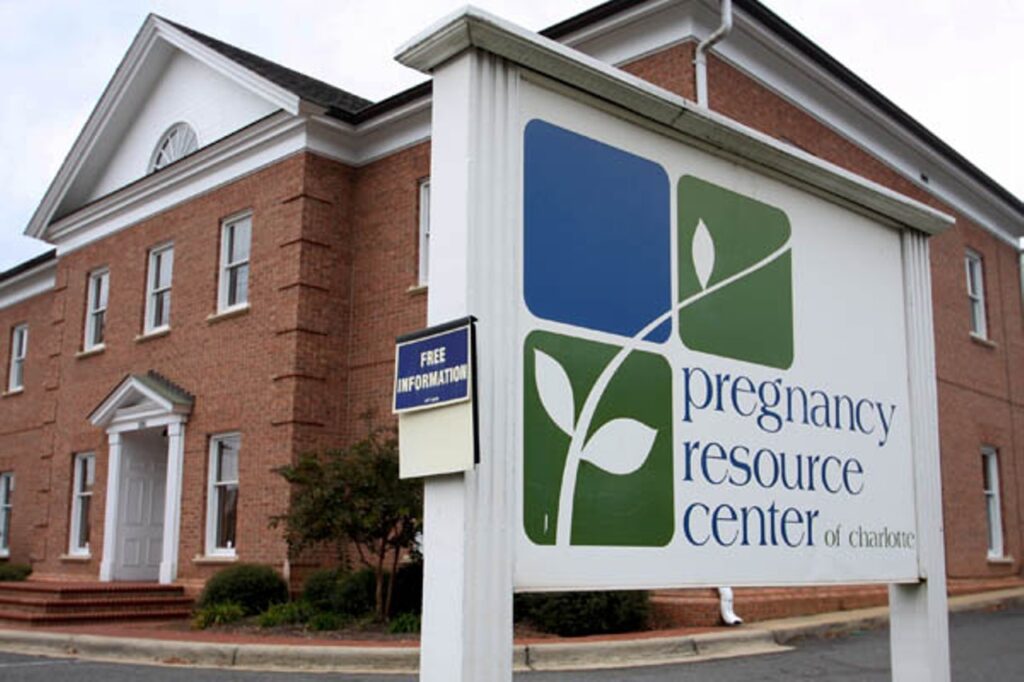
Photo from JASIATIC CLC
As a growing number of U.S. states enact bans on abortion, pregnant individuals are overwhelmingly turning to online resources for medical care. From telehealth providers to abortion travel services, virtual healthcare is now vital for abortion-seekers across the country. But despite the increased use of online services, the internet can also be a hotbed of abortion misinformation.
According to a new report from the Center for Countering Digital Hate (CCDH), a non-profit that tracks online misinformation, Google has earned $10.2 million from advertisements misdirecting users to fake abortion clinics. These clinics, also known as “crisis pregnancy centers” (CPCs), are facilities that portray themselves as legitimate reproductive health clinics, but actually exist to convince women not to have abortions.
Using the analytics tool Semrush, CCDH researchers identified a total of 188 fake clinic websites that advertise their services on Google Search. Of these clinics, 84 percent target internet users searching for abortion-related keywords and phrases.
Imran Ahmed, co-founder of CCDH, reprimands Google for misdirecting hundreds of thousands of Americans seeking abortion care. “Google is a willing participant and supporter of the fake clinic industry,” says Ahmed. “It is the lynchpin of a multi-million dollar fake clinic industry that works around the clock to deprive Americans of medical assistance by deceptive means.”
The Escalating Threat of CPCs
The American College of Obstetricians and Gynecologists defines CPCs as nonmedical facilities that “aim to dissuade people from accessing certain types of reproductive health care, including abortion care and even contraceptive options.” While some clinics employ registered nurses and social workers, the centers themselves are unregulated by state health departments.
Without substantive regulations, CPCs have no legal obligation to present accurate medical information to pregnant individuals and are not required to maintain client confidentiality. Various undercover clients have stated that CPC counselors told them that abortions elevate mental illness and infertility risks. CPCs have also told patients that women who get abortions are more likely to commit suicide. None of this is true.
In fact, a study found that being denied abortion care results in worse financial, health, and family outcomes for women. Without abortions, women are four times more likely to live below the federal poverty line. The study further reports that 95 percent of women who had an abortion expressed that the procedure was the best decision for them.
But with the help of Google Search, CPCs use digital marketing tactics to quickly spread misinformation about abortion. The CCDH study estimates that 71 percent of fake clinics advance false claims that abortions are linked to harms such as cancer through advertisements. Google Search has also become the top source of referrals to CPCs. With Americans making nearly 102 million Google searches related to abortion each year, Google is complicit in spreading abortion misinformation.
CPCs are Connected to the Increase of Violence against Abortion Facilities
When the U.S. Supreme Court eliminated the federal right to abortion, anti-abortion groups began targeting clinics in states protective of abortion. While many extremist groups use physical violence to intimidate abortion providers, CPCs are equally important to the violent anti-abortion movement.
According to the Feminist Majority Foundation’s (FMF) most recent National Clinic Violence Survey, abortion clinics located near a CPC are more likely to experience high levels of violence and harassment. The survey reports that 41 percent of such abortion clinics experience at least one case of severe violence. CPCs not only confuse patients but are connected to increased violence against actual reproductive healthcare providers.
Today, CPCs outnumber abortion clinics three to one, with 2,546 operating nationwide. As more reproductive health clinics stop offering abortion care, CPCs will create unsafe environments for both abortion seekers and doctors.
Google’s Role in Helping CPCs
The FMF stands with women and all pregnant individuals. Through our National Clinic Access Project, we aim to reduce anti-abortion violence and misinformation. CPC advertisements facilitated by Google threaten the life-saving work of abortion clinics.
In line with CCDH recommendations, FMF urges Google to demand full transparency from fake clinics running advertisements. Currently, one-third of CPCs do not state on their websites that they do not provide abortion care. Fake clinics must include disclaimers about their services, and Google should prohibit advertisement grants for deceptive CPC websites.
Above all, Google should prioritize real abortion clinics in search results. When pregnant individuals seek healthcare, they need real services that offer the full range of reproductive care options. Highlighting licensed medical facilities in abortion-related searches would ensure that Google users are connected to organizations that truly care about their autonomy. Abortion seekers deserve no less than the truth.
